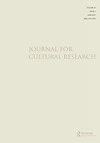危机,什么是危机?关于评估新冠肺炎对澳大利亚艺术和文化影响的一些方法论思考
IF 0.6
Q1 CULTURAL STUDIES
引用次数: 1
摘要
本文讨论了2021年基于访谈的试点项目,该项目研究了COVID-19对昆士兰东南部艺术家和文化组织的影响。虽然它涉及经验数据,但它解决了概念上的问题。我们的访谈旨在捕捉疫情对文化从业者造成的情感和客观代价。这篇文章考虑了“价值危机”这个短语,并询问是否应该用它来描述这段时间澳大利亚文化部门的状况。继Will Davies关于证明“新自由主义现实主义”世界观所需的智力资源的论点之后,它通过反思其评估方法来探讨COVID-19对文化部门的影响。对14个访谈记录的主题、情绪和关键词进行了数字分析,并得出了关于从业者潜在态度的十个推论。在什么情况下,新自由主义对利益的计算不再令人信服和/或以令人信服的方式交付?什么因素构成了艺术和文化中的“价值危机”?结论认为,新自由主义评估的方法维度只是其社会可接受性的一个组成部分,因此只是感知危机状态的一个因素。本文章由计算机程序翻译,如有差异,请以英文原文为准。
Crisis, what’s a crisis? Some methodological reflections on evaluating the impact of Covid-19 on Australian arts and culture
ABSTRACT This essay discusses a 2021 interview-based pilot project on the impact of COVID-19 on a cross-section of Southeast Queensland artists and cultural organisations. Though it engages with empirical data, it addresses conceptual concerns. Our interviews aimed at capturing the emotional as well as the objective costs of the pandemic on cultural practitioners. The essay considers the phrase ‘crisis of value’ and asks whether it should be used to describe the state of the Australian cultural sector during this time. Following the arguments of Will Davies in respect of the intellectual resources needed to justify a ‘neoliberal realist’ worldview, it explores the impact of COVID-19 on the cultural sector by reflecting on its evaluative methods. Digital analysis of the themes, sentiments, and keywords of 14 interview transcripts are presented and ten inferences drawn about practitioners’ underlying attitudes. Under what circumstances do performances of neoliberal calculations of benefit cease to be convincing and/or delivered in a convincing way? What factors constitute ‘a crisis of value’ in arts and culture? The conclusion argues that the methodic dimension of neoliberal evaluation is only one component of its social acceptability, and therefore only one factor in the perception of a state of crisis.
求助全文
通过发布文献求助,成功后即可免费获取论文全文。
去求助
来源期刊

Journal for Cultural Research
CULTURAL STUDIES-
CiteScore
1.40
自引率
0.00%
发文量
23
期刊介绍:
JouJournal for Cultural Research is an international journal, based in Lancaster University"s Institute for Cultural Research. It is interested in essays concerned with the conjuncture between culture and the many domains and practices in relation to which it is usually defined, including, for example, media, politics, technology, economics, society, art and the sacred. Culture is no longer, if it ever was, singular. It denotes a shifting multiplicity of signifying practices and value systems that provide a potentially infinite resource of academic critique, investigation and ethnographic or market research into cultural difference, cultural autonomy, cultural emancipation and the cultural aspects of power.
 求助内容:
求助内容: 应助结果提醒方式:
应助结果提醒方式:


